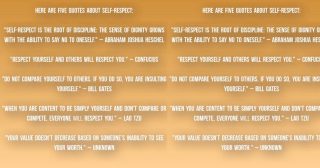10 Principles That Can Cause a Person to Remain Poor for the Rest of Their Life
The way people think about and manage money can have a huge impact on their financial future. Sometimes, certain beliefs and habits can create patterns that keep people stuck in a cycle of financial struggle. Here are ten common mindsets and behaviors that can lead to ongoing financial difficulties—and how to shift them.

1. Living Paycheck to Paycheck
The Principle: Spending everything you earn leaves no room for savings or investments. This approach keeps you vulnerable to financial setbacks, such as unexpected expenses or job loss.
How to Change It: Create a budget that allows for savings, even if it’s just a small amount each month. Building an emergency fund can provide stability over time.
2. Relying on Debt to Meet Basic Needs
The Principle: Using credit cards or loans to cover living expenses can quickly lead to high-interest debt, making it harder to save or invest in the future.
How to Change It: Prioritize paying off debt, starting with high-interest balances. Limit borrowing to things that provide value, such as education or career investments.
3. Avoiding Financial Planning
The Principle: Failing to set goals, plan a budget, or track expenses can make it difficult to control your finances or reach long-term goals.
How to Change It: Start small by tracking monthly expenses and setting one financial goal, such as saving for retirement or an emergency fund. Regular financial planning helps you make informed choices.
4. Thinking Only in the Short Term
The Principle: Focusing solely on immediate needs and ignoring long-term goals prevents wealth accumulation. Short-term thinking can lead to spending without saving.
How to Change It: Set clear financial goals for five, ten, and even twenty years down the line. Allocate funds for both immediate needs and future aspirations, like retirement or property.
5. Not Investing in Self-Improvement
The Principle: Believing that learning or skill development isn’t worth the time or money limits career growth and income potential.
How to Change It: Consider skill-building as an investment with potential returns. Look for affordable courses, books, or mentors to grow your skills, which can lead to higher-paying opportunities.
6. Believing That “Money Is the Root of All Evil”
The Principle: Negative beliefs about wealth can lead to self-sabotage and a reluctance to earn or save money, viewing it as morally questionable.
How to Change It: Reframe money as a tool that can provide freedom, security, and opportunities. Think of money as a resource that can be used for positive change, not something inherently negative.
7. Relying on a Single Income Stream
The Principle: Having just one source of income creates vulnerability, as any changes in that source can leave you without financial support.
How to Change It: Explore side hustles, freelance work, or small investments that create additional income streams. This diversification can provide extra financial stability.
8. Blaming Circumstances Instead of Seeking Solutions
The Principle: Believing that financial struggles are due solely to bad luck or external circumstances leads to a sense of helplessness, discouraging proactive solutions.
How to Change It: Shift your mindset to focus on what you can control. Set achievable financial goals, learn from setbacks, and seek advice when needed. Small steps can create long-term change.
9. Spending to Impress Others
The Principle: Using money to gain approval or status can lead to overspending and debt, often leaving little for savings or investing.
How to Change It: Focus on your own values and long-term goals instead of spending to fit in or impress. Budget for things that truly matter to you rather than for social expectations.
10. Avoiding Risk and Opportunity
The Principle: Fear of failure can prevent people from taking financial risks, such as investing or starting a business. This avoidance keeps you from building wealth over time.
How to Change It: Educate yourself about financial options and take calculated risks. Small, informed investments or entrepreneurial steps can build wealth gradually.
Changing financial habits can take time, but addressing these beliefs and behaviors can help break the cycle of financial struggle. By developing a mindset that values long-term planning, financial literacy, and strategic risk, you can start building a foundation for a more secure and prosperous future.









